Inside: Help raise kind kids and be a kind adult with these 10 simple ways to speak and act with kindness on a daily basis to model kindness for your kids.
Last February, I spent the cold morning outside of a grocery store with 10 little girls as they asked people to buy Girl Scout cookies.
They heard everything from yes, to no, to I already bought some.
And my job was to help them respond with gratitude and kindness. To be businesswomen who don’t take “no” personally. Who offer potential customers to donate them to our troops if they can’t eat the cookies themselves.
We work on being polite and selling with a smile and how to make change correctly. All essential life skills.
At the end of our cookie booth shift, another troop was scheduled to take over our area.
The leader began to set up early while we were still selling and her cases of cookies got super close to ours. As I packed up my girls and our cookies to get out of her way, she accused me of stealing a case of her cookies.
Listen, it’s easy to be kind to others when they’re kind to us. But when others are unkind or downright rude, it can be hard to maintain our kind demeanor.
But my girls were watching me.
I had to show them how to be kind even when I didn’t really feel like it.
So I smiled and told her I was pretty sure I only took my cookies, but I would of course double-check.
And I didn’t have her cookies, but she didn’t believe me. She kept insisting I had her cookies and wanted my name and phone number.
I kept my cool and kept my kindness and later we found out she had left her case of cookies in her own driveway.
Of course she did.
But the takeaway was how I handled the situation. Because I talked to my girls about it.
They commented on how mean she was.
And I agreed. But I told them even when someone is unkind, and we’re mad about it, we don’t have to be mean back.
Related: How to Help Kids be Mad Without Being Mean
And we talked about how I handled it.
I smiled at her. I stayed calm. And I got help because I needed it (I had to call someone in charge of this cookie madness so they knew there was an issue that might get rolled up to them).
And my girls saw all of it.
In that moment, they saw I hold myself to the same standards I hold them to. Because it’s also essential to be a kind adult.

Why should adults be kind?
We are raising our kids to be kind because it’s essential to make sure they become the best versions of themselves.
It’s so important to us, it’s one of our only two family rules.
When our kids are kind to their classmates, kind to their teammates, and kind to safe strangers, they not only make the world a better place, they also inspire others to act and speak with kindness.
And when our kids are kind to their siblings, our whole family dynamic shifts to a calmer, more peaceful place to be.
Kind siblings make my world a better place.
Related: Raising Kinder Siblings
To raise kind kids, we have to do a couple of things:
- we talk about kindness with these 60 kindness discussion starters,
- we praise kindness when we see it and “reward” the behavior with a positive consequence,
- and we give our kids opportunities to show they’re kind with kindness challenges and kindness activities and kindness crafts.
But as adults, we often forget the most important component of raising kind kids: modeling kindness for them.
Related: How to be the role model our kids want and need
If we expect our kids to be kind, we have to walk the walk and talk the talk.
We have to show our kids appropriate behaviors of how to interact in tricky social situations.
And since our kids watch our every move and are always absorbing what we say, we have to show them what kindness looks like and sounds like.
And how can I tell my kids to do something I don’t do?
Simply put, I can’t.
Simple Ways to Be a Kind Adult:
1. Be mindful of others with simple, normal, everyday acts of kindness
Be mindful of other people around us by looking up and being thoughtful.
These are great teachable moments and show our kids how we can infuse kindness into our every day lives with very little effort or hardship on our part.
But they make someone else’s day just a little bit easier and we don’t really know how big of an impact that can have on someone else’s day.
- We can look behind us to see if someone is there before letting go of the door.
- We can help a mama with a stroller and a toddler in tow get through the door.
- We can tuck our legs in as someone is trying to pass.
- We can move our bags off our chair so someone else can sit down.
- We can give up our seat to someone who needs it more than us.
- We can bus our table at a restaurant and throw our trash away at a movie theater.
- And we can smile at people and thank people when they help us.
Inspire your kids to also participate in simple, normal, everyday acts of kindness Scavenger Hunt.
2. Look for ways to be a helper
When we see someone who is struggling, ask if you can help them.
And help them with a smile and generous heart without expecting anything in return.
Or you can just help if it’s not intrusive.
- Pick up something someone drops.
- Offer napkins to the people at the table next to me who spilled their water.
- Get a drink for someone when you get yourself one.
- Do someone else’s chore just because you can.
- Offer to take a family’s photo.
- Reach something high for someone who is struggling to get it down.
Here are ways you can also encourage your kids to help
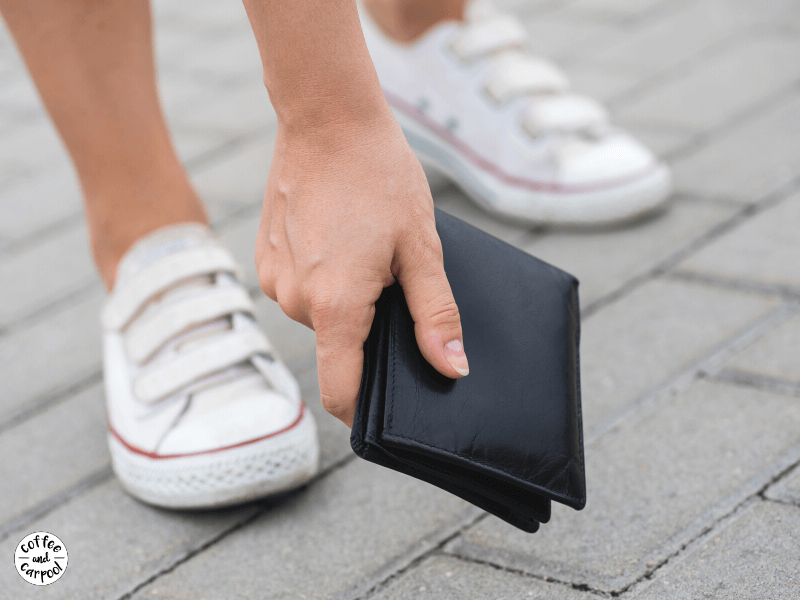
3. Give freely
No matter how little we have, someone always has less.
And it feels good to give to others who need something because it releases dopamine in our brains. And then we want to give more.
We can give a little or we can give a lot.
But when we give to others it shows our kids this is a part of life.
Some cultures and religions call it charity or tithing or tzedakah.
You can give money or give goods in kind or give your time.
But give what you can, when you can, as often as you can. And have your kids help you.
And more importantly, don’t feel guilty if you haven’t given as much as you want or as often as you want.
Just do what you can now.
Related: Family Friendly Ways to Volunteer and Give to Others
4. Speak kindly to your kids
As an adult, it’s super easy to use our position of power to talk down to our kids.
To speak to them with unkindness, because we can.
There’s no one telling us we can’t.
But we can’t.
If we want our kids to speak with kindness and treat us with respect, we also have to speak to our kids with kindness and treat them with respect.
To do that, we have to keep our emotions in check.
We have to stay calm when they misbehave or break our family rules or speak unkindly to us.
It’s not always easy, but we have to be kind to our kids.
Because we can.
And because we’re the only adult in the relationship and we need to model kindness for them.
Related: How to not blow up when our kids are unkind to us
5. Speak kindly about others (especially in front of your kids)
People can be unkind. They can be rude. They cut us off on the freeway. And they accuse us of being a cookie stealer.
But when we speak, our kids are listening to us.
We can call them mean names in our head if we need to. But out loud, show our kids how to react to someone who is unkind or rude.
I usually just announce how unkind they were or what an unsafe driver they’re being.
And then I move on.
Need help staying kind even when you don’t feel like it? Be authentic more often by filling your mind with the right kinds of messages like the ones in this Daily Authenticity Calendar.
6. Be a good friend
Show your kids how to be a good friend by being a good friend yourself.
Help your friends and offer to help their kids.
Give out compliments freely and keep the judgement to yourself.
Be your friends’ biggest cheerleaders and be there on their worst day.
Being a good friend shows our kids how to be a good friend and what true friendship looks like.
Related: How to help our kids be a good friend
7. Be an includer
We often talk to our kids about being an includer, a welcomer, a person who reaches out to someone sitting by themselves.
It’s the highest form of kindness.
Related: How to teach your kid to be an includer.
But it applies to adults too.
Invite someone to sit next to you.
Introduce yourself to the new mom on the playground.
Take something to a new neighbor and invite their kids to play with your kids.
Open up your circle of mom friends. Be the welcome wagon.
8. Compliment kindness when you see it
When you see someone else do something awesome, call it out.
If a kid is kind, praise them to their parents so they can hear.
When you see a teen or tween act with kindness, praise them.
Give compliments freely.
Lift others up.
9. Smile and say “hi” often
A simple smile can lift anyone’s day or spirits.
Challenge yourself to smile to strangers and acquaintances.
Smile at the mail carrier and the garbage collector and the janitor.
As an added bonus, smiling will make you feel happier.
Wave to kids who wave to you.
Say ‘hi‘ as you pass someone. Interacting with people around us connects us to other people.
And that connection feels good.

10. Hold peers, family, and friends accountable to be kind adults too
When you see a peer being unkind or bullying someone else, stand up to them.
Speak out against unkindness.
Speak up for someone who needs you to speak up.
Stand with victims of bullying and racial injustice and homophobia.
Don’t allow your friends or family to use slurs.
Don’t let people use the “r” word to describe people with learning differences.
Call them out on it, tell them to knock it off, and make it clear you don’t allow cruelty, bullying, and hatefulness in your life.
Because if we want a kinder world, a world where our kids are kind to others, we have to be kind first.
We have to live a life full of kindness.
And we have to expect kindness from others.
Even if they don’t show it.
Even if they accuse us of stealing a case of Girl Scout cookies.
Because our kids are watching us and learning how to be kind from us.

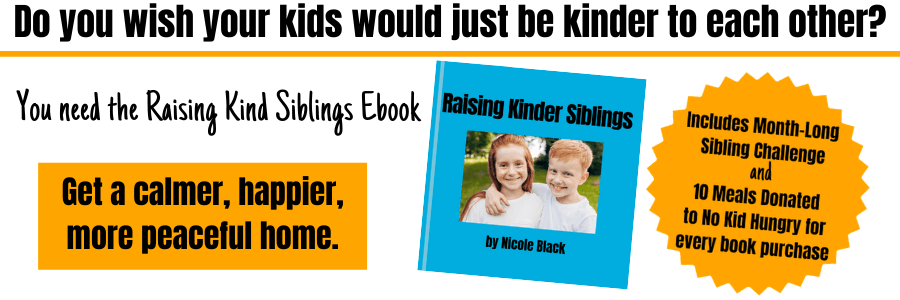
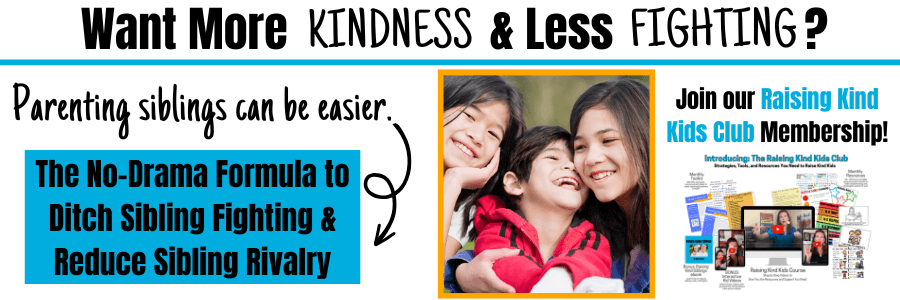
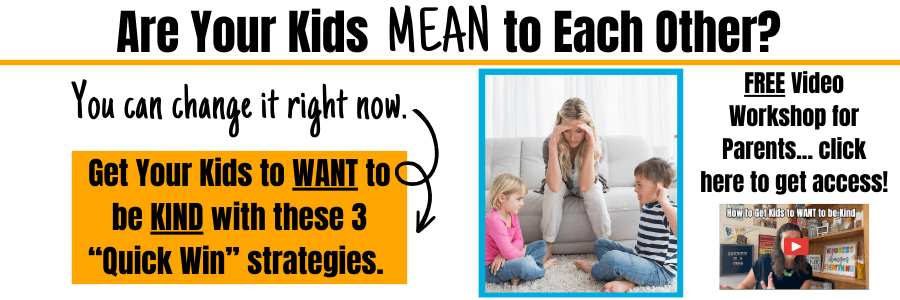
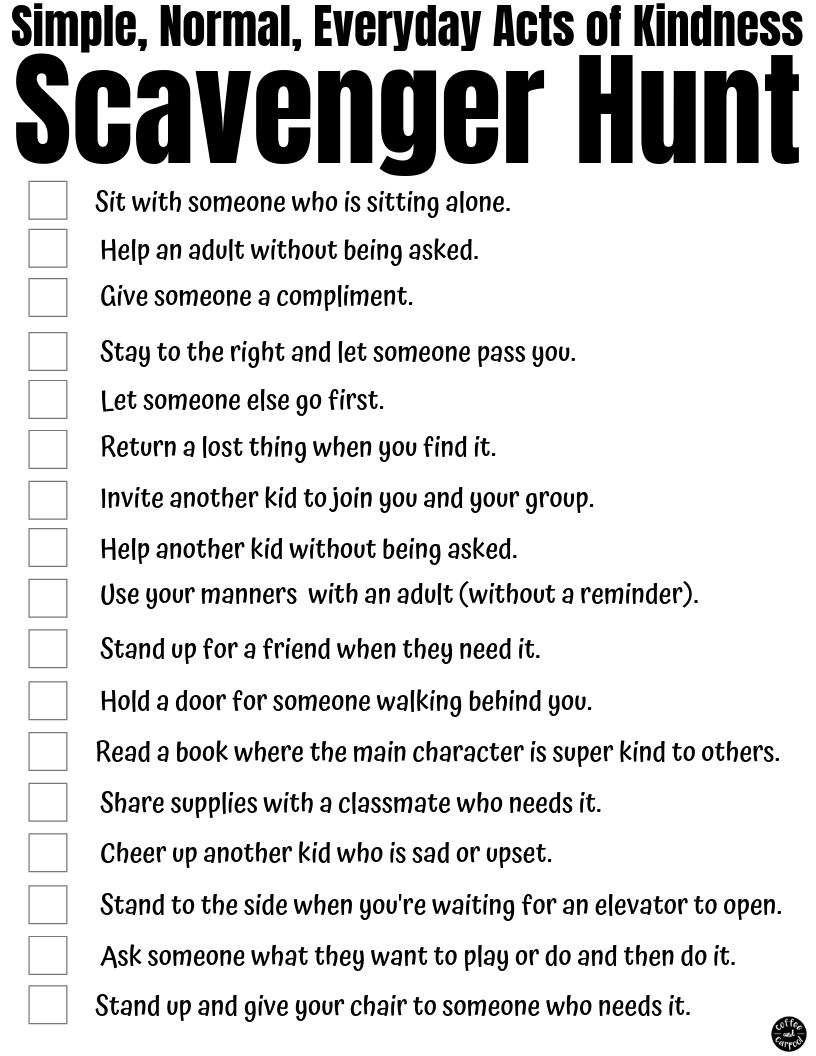

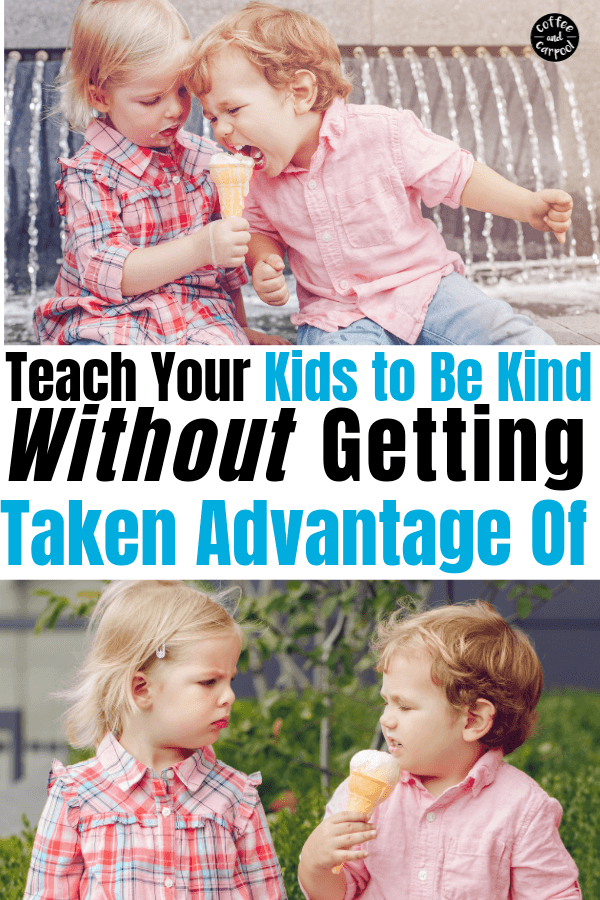
Leave a Reply